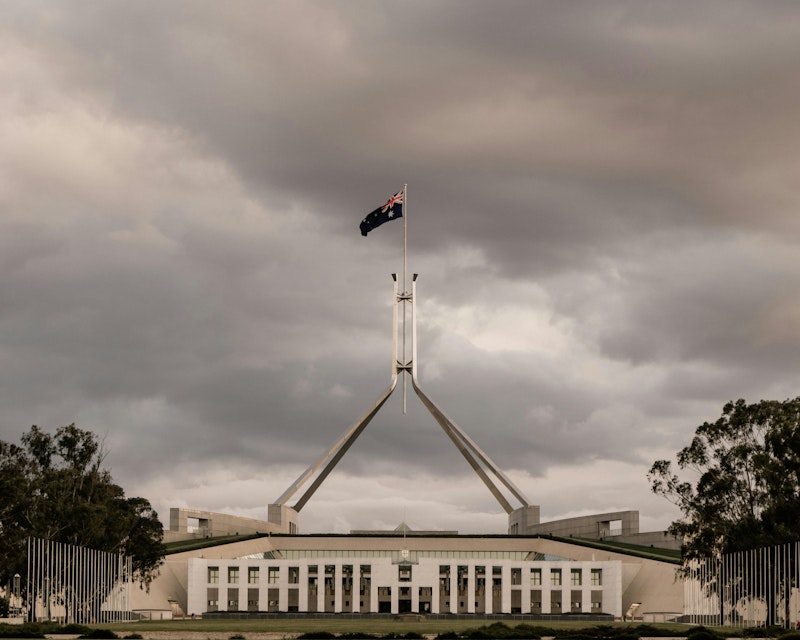Slim Pickings for SMEs in Federal Budget 2025-26
The 2025 Federal Budget proved to be a fairly timid affair with no real game-changing announcements that will assist Australia’s small to medium businesses while stoking uncertainty around instant asset write-off extensions beyond June 30, 2025.
While there were a lot of micro announcements including new tax cuts for every Australian taxpayer which will reduce the first marginal tax rate from 16 to 14 per cent over two years, the Budget papers do acknowledge they are “modest”.
For Australian businesses hoping for a step towards major taxation or productivity reform, not a lot announced will have a significant impact. Small businesses may want to consider how to plan their capital expenditure with no announcements made in relation to the instant asset write-off.
Chief Executive Officer of Earlypay, James Beeson, said despite slim pickings for business, there were some measures included designed to assist the nation’s SMEs.
“While initiatives such as energy rebates and a freeze on beer excise are helpful for some, the nation’s SMEs, which according to NAB figures comprise over 99 per cent of businesses across the country and provide two-thirds of the labour force, are in need of broader macro changes from the Federal Government,” Beeson said.
“They’ve had a particularly difficult few years and with increasing global economic uncertainty, the next few years will be crucial for many and the Australian economy as a whole,” Beeson said.
Beeson applauded the Budget announcement supporting small business owners through the NewAccess for Small Business Owners program and Small Business Debt Helpline, highlighting that mental health and financial well-being for SMEs is critical in times of slowing business growth.
There was also some support for the hospitality sector and alcohol producers by pausing indexation on draught beer excise. Moreover, $60 million has been set aside to help small businesses uplift their digital and cyber security capabilities.
Beyond those measures, other news for the SME sector includes an undertaking to promote 20-day payment times for contractors and subcontractors working for Commonwealth Government Business Enterprises and non-corporate Commonwealth entities on major construction activity.
There’s also $20 million to support Australian producers through the Buy Australian Campaign, aiming to encourage consumers to buy Australian-made products, acknowledgement of the importance of Australian manufacturers.
Less positive was no commitment to extend the instant asset write-off tax break beyond June 30 this year allowing small businesses to immediately depreciate assets worth $20,000 or less.
More pertinently, while the Treasury Laws Amendment (Tax Incentives and Integrity) Bill 2024 from last year’s Federal Budget was only passed into legislation late last week extending the instant asset write-off through 2024-2025, no commitment to extend it means the asset write-off threshold will drop to just $1,000 next financial year.
For Beeson, not announcing an extension “doesn’t augur well for the future of the tax break which is one of the few SME tax incentives that meaningfully benefits SMEs”.
This hit to SMEs comes on top of the announcement that the Australian Taxation Office is being given increased funding to ensure mid-market businesses are tax-compliant. And following a recommendation from the Productivity Commission, the Government will ban non-compete clauses for low- and middle-income workers.
The aim of this ban is to free many Australian workers to move to more productive, higher-paying jobs or start their own business.
Business groups are less sure of the ban with the Australian Chamber of Commerce and Industry (ACCI) expressing disappointment at the announcement of an election policy to severely curtail the use of non-compete clauses.
They argue that the ABS reports that only 1 per cent of employees, according to businesses, turn down employment due to non-compete clauses.
ACCI chief executive officer Andrew McKellar stated, “given this small cohort, banning their use for employees on less than $175,000 a year is heavy-handed.”
For Beeson, any extra regulation on Australian SMEs at a time when business growth is slowing may act as a handbrake on the sector when some real regulatory reform would shake small business and the economy out of the doldrums.
“While it’s a Federal Budget that has something for everyone and doesn’t significantly alienate any particular group, it presents a wasted opportunity to really power Australia forward over the next decade.
“Hopefully, with $40.8 billion included in the contingency reserve for measures that either cannot be published or are yet to be announced ahead of the election there may be more to come for business from the Federal Government as the election campaign gets underway,” Beeson said.
